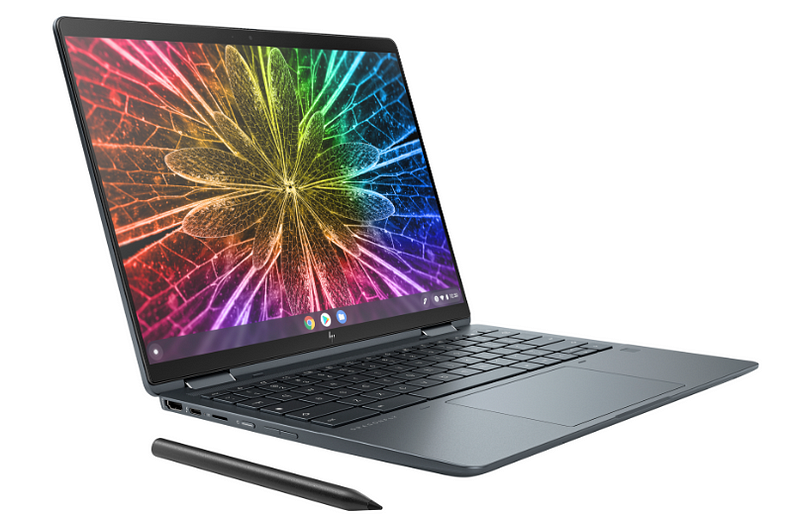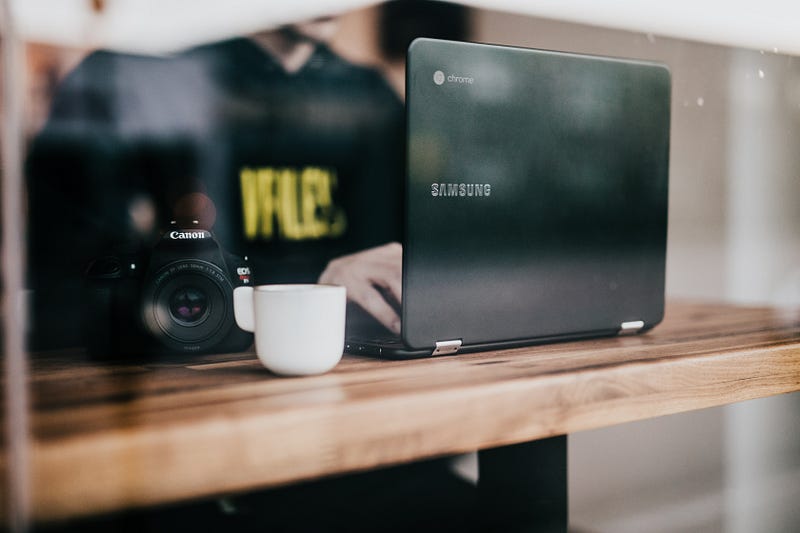Why Chromebooks Deserve More Appreciation Than They Get
Written on
Understanding Chromebooks
The recent quarterly report revealing a dip in Chromebook sales, along with numerous articles and tech experts criticizing ChromeOS, prompted me to weigh in on this topic.

While it may not boast the same level of power or features as Microsoft Windows, macOS, or Linux, ChromeOS certainly has its niche among these operating systems. I contend that it warrants respect and thoughtful consideration when you're contemplating your next computer purchase. However, it's crucial to evaluate your actual computing requirements before making a decision.
For many users, a Chromebook powered by ChromeOS could be all they ever need, but ultimately, that’s a personal choice. So, what exactly is a Chromebook (or a Chromebox for desktop users)?
What are Chromebooks and Chromeboxes?
Chromebooks (laptops) and Chromeboxes (desktops) run on Google's lightweight operating system, ChromeOS. These devices are designed to be primarily internet-connected to maximize their functionality, as users typically spend most of their time in the Chrome browser.
While their primary market is education, they also serve as fantastic options for individuals who mainly browse the web, check emails, and perform productivity tasks using Google Workspace, which includes tools like Docs, Sheets, and Slides. If you have a Gmail account, you automatically gain access to Google Workspace.
Moreover, Chromebooks and Chromeboxes are generally more affordable than their Microsoft and Apple counterparts, thanks to the minimal hardware requirements of ChromeOS. This cost efficiency extends beyond the initial purchase, impacting overall ownership costs.
You can find Chromebooks starting as low as $99. While this price point won’t get you cutting-edge hardware, it provides a functional computer that can be viewed as disposable if it breaks—especially beneficial for school-age children.
However, premium Chromebooks exist that can compete with Windows and macOS devices. While the $99 models represent the entry-level price (refurbished units may be even cheaper), you can also invest over $1,000 for a high-end Chromebook that features aluminum construction, the latest processors, substantial RAM, high-resolution touch displays, and ample SSD storage.

For instance, the fully-loaded HP Elite Dragonfly 13.5-inch Chromebook retails for a staggering $3,246 directly from HP.
Here's what you get for that investment: - Intel Core i7–1265U (12th Gen processor) - 32GB RAM - Integrated Graphics - Anti-Glare WUXGA+ Touchscreen Display with a resolution of 1920x1280 - Corning Gorilla Glass 5, 400 nits brightness - Privacy features - Backlit Keyboard with Haptic Touchpad - HP Digital Pen - 512 GB PCIe NVMe SSD - Intel Wi-Fi 6E AX211 and Bluetooth 5.3 - 5MP Integrated Camera - Integrated Fingerprint Sensor - 4-cell, 50-WHr Battery - 65-watt AC Adapter with a USB-C connector - 1-year Warranty
These specifications showcase the high quality of the device. In fact, these specs would be impressive in any Windows laptop or MacBook. Clearly, this is a robust Chromebook, as one would expect in this price range.
Do You Really Need a High-End Chromebook?
The pressing question is whether you truly require such a sophisticated machine to enjoy the Chromebook experience. The answer is a resounding no.
So, who are the ideal users for Chromebooks?

The answer varies, as it ultimately depends on individual needs. While Chromebooks may not be the perfect fit for everyone, they could be suitable for a majority. If you spend most of your time in a web browser, a Chromebook might be your best bet. If you are integrated into the Google ecosystem, a Chromebook could be the right choice. Additionally, for those seeking an affordable casual computing option, a Chromebook may be just what you need.
These users represent strong candidates for Chromebooks, but it's worth noting that these devices can handle more than just basic browsing. Many modern Chromebooks support running Android apps alongside native ChromeOS applications. This significantly broadens the available app catalog, allowing users to access their favorite Android apps seamlessly on their laptops.
Furthermore, with adequate hardware, some Chromebooks can also run Linux, opening the door to a range of Linux applications. This capability makes them viable tools for developers or full-fledged productivity devices. While a $99 Chromebook may not meet these requirements, it's worth considering that not all users need high-end specs.
In summary, if you're in need of a versatile computing device and primarily operate within a web browser, a Chromebook merits serious consideration.
Final Thoughts on Chromebooks
While I predominantly use Microsoft Windows for work and a MacBook Air for personal tasks, I also own a Chromebook and have experienced various models over the years without any dissatisfaction.
These devices excel when you understand their limitations and your own requirements. Critics of Chromebooks often either purchase them without evaluating their needs concerning ChromeOS's limitations or have never truly used one. Both scenarios reflect more on user expectations than the device itself.
If your tasks involve advanced photo or video editing, a Chromebook may not be suitable. However, if your primary activities include web browsing, checking emails, video conferencing, and streaming services like YouTube and Netflix, a Chromebook will likely meet your needs satisfactorily.
In my view, opting for a Chromebook in the $300 to $600 range will provide decent specifications and performance, ensuring a smooth user experience. For most users, that’s all that is needed from their computing devices.
Don't dismiss Chromebooks and ChromeOS without considering what you might be overlooking.
Until next time…
If you appreciated this article or even if you didn't, I invite you to explore everything Medium has to offer by subscribing through my referral link below.